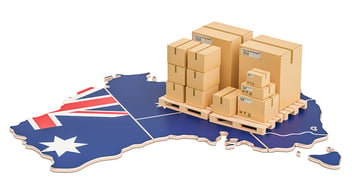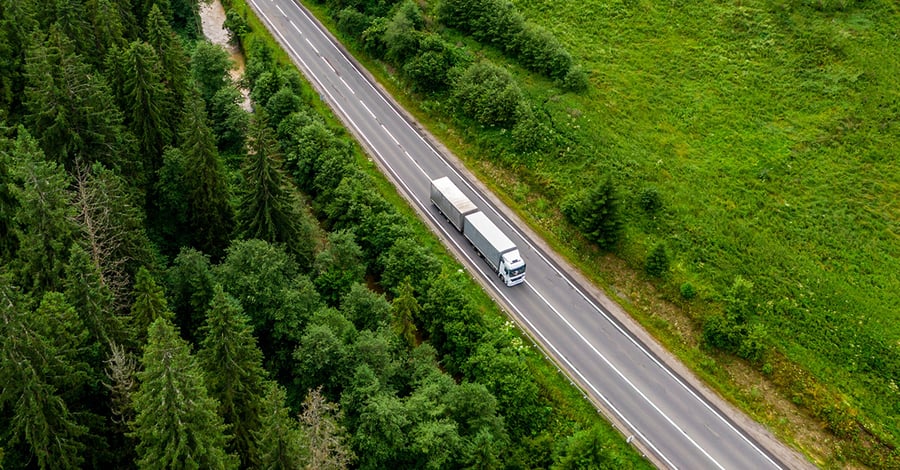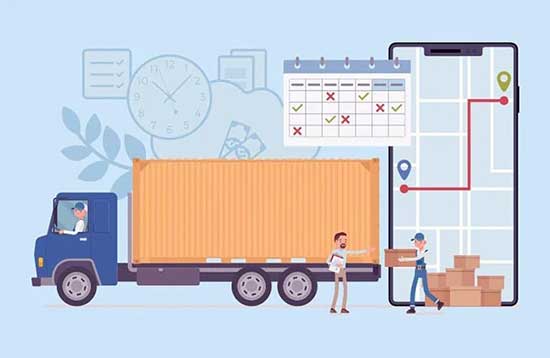The logistics industry, a vital cog in the global supply chain, has a significant environmental footprint. The transportation of goods across vast distances, coupled with energy-intensive warehouse operations, contributes substantially to carbon emissions and environmental degradation. As the world grapples with climate change and resource depletion, the pressure is mounting on logistics providers to adopt sustainable practices.
Governments worldwide are implementing stricter environmental regulations, while consumers and businesses are increasingly demanding sustainable solutions. 3PL providers, in particular, are at the forefront of this sustainability movement. By embracing eco-friendly technologies and practices, 3PLs can not only reduce their environmental impact but also enhance their brand reputation and gain a competitive edge.
Why Sustainability is Critical for 3PL Providers
Sustainability is not just a moral obligation but a strategic imperative for 3PL providers. Several key factors underscore its importance:
- Regulatory Compliance: The global landscape is increasingly stringent on environmental and social standards. 3PLs must adhere to these regulations to avoid hefty fines and legal repercussions.
- Customer Demand: Modern consumers prioritize ethical and sustainable practices. Customers are seeking 3PL partners who share their commitment to environmental responsibility and social justice.
- Cost Benefits: Sustainable initiatives, such as energy efficiency, waste reduction, and optimized logistics, can lead to significant cost savings. By reducing operational costs, 3PLs can enhance their profitability.
- Competitive Edge: Sustainability can be a powerful differentiator. By adopting eco-friendly practices, 3PLs can attract new clients, strengthen existing partnerships, and position themselves as industry leaders.
Key Sustainable Technologies for 3PL Providers
The 3PL industry is undergoing a green revolution, driven by increasing environmental concerns and stringent regulations. To stay competitive and responsible, 3PL providers are adopting cutting-edge technologies to enhance sustainability.
Warehouse Technologies
- Energy-Efficient Lighting and Equipment: The inefficient incandescent bulbs are history now. Modern warehouses are illuminated by energy-efficient LED lights, which consume significantly less power while providing superior brightness. These advanced lighting control systems can also automatically adjust lighting levels based on occupancy and daylight, further reducing energy consumption.
- Automation & AI: Artificial Intelligence is transforming warehouse operations. AI-driven warehouse management systems optimize space utilization, minimize energy consumption, and streamline workflows. For instance, robots can autonomously navigate warehouse aisles, picking and packing orders with precision. This not only reduces labor costs but also minimizes energy usage by optimizing routes and reducing unnecessary movements.
- Renewable Energy: Renewable energy sources are gaining traction in the 3PL industry. Solar panels can be installed on warehouse rooftops to generate clean electricity, offsetting reliance on fossil fuels. Wind energy, particularly in regions with strong wind patterns, can also be harnessed to power warehouse operations. By embracing renewable energy, 3PL providers can reduce their carbon footprint and contribute to a greener future.
Transportation Technologies
- Electric vehicles (EVs): EVs are revolutionizing the transportation industry. By switching to electric fleets, 3PL providers can significantly reduce their carbon footprint and operating costs. EVs produce zero tailpipe emissions, contributing to cleaner air quality. Additionally, the lower maintenance costs and fuel savings associated with EVs can lead to substantial cost reductions.
- Telematics and route optimization: Advanced telematics and route optimization systems are empowering 3PL providers to make informed decisions about their delivery routes. By leveraging real-time traffic data, GPS tracking, and predictive analytics, these systems can identify the most efficient routes, minimizing fuel consumption and reducing emissions. Furthermore, these technologies can help avoid traffic congestion, leading to faster delivery times and improved customer satisfaction.
Green Practices for 3PL Providers

As the world becomes increasingly conscious of its environmental impact, 3PL providers are taking steps to adopt sustainable practices. Below are some points in which transportation management systems (TMS) and warehouse management systems (WMS) help:
TMS and WMS: A Sustainable Partnership
TMS software and WMS software are powerful tools that can significantly contribute to sustainability efforts within supply chain operations. By optimizing processes, reducing waste, and minimizing environmental impact, these systems enable businesses to operate more efficiently and responsibly.
TMS Software-Specific Sustainability Capabilities
- Route Optimization:
- Reduced carbon emissions: TMS software minimizes unnecessary mileage by identifying the most efficient routes, lowering fuel consumption and associated greenhouse gas emissions.
- Fuel conservation: Optimized routes reduce idle time and fuel wastage, leading to significant cost savings and environmental benefits.
- Consolidation of Freight:
- Increased productivity: By consolidating shipments, TMS software reduces the number of delivery trips, lowering fuel consumption and emissions.
- Improved efficiency: Consolidated loads optimize vehicle capacity, maximizing the use of resources and minimizing transportation costs.
- Data-Driven Decision Making:
- Enhanced visibility: TMS software provides real-time data on fuel usage, CO2 emissions, and other relevant metrics, enabling businesses to monitor and track their environmental impact.
- Informed decision-making: Data-driven insights help businesses identify areas for improvement, optimize operations, and set sustainable goals.
WMS Software-Specific Sustainability Contributions
- Inventory Optimization:
- Reduced waste: Accurate inventory tracking minimizes overstocking and understocking, preventing product obsolescence and unnecessary disposal.
- Sustainable practices: Optimal inventory levels reduce the need for frequent replenishment, lowering transportation emissions and energy consumption.
- Energy-Efficient Workflow Design:
- Reduced energy consumption: By streamlining warehouse processes and optimizing workflows, WMS software minimizes energy usage for lighting, heating, and cooling.
- Efficient equipment utilization: WMS software optimizes the use of warehouse equipment, reducing energy consumption and maintenance costs.
- Storage Solutions:
- Optimized storage: WMS software algorithms suggest the most efficient storage locations, reducing the need for excessive movement and energy consumption.
- Reduced transportation: By minimizing the distance traveled within the warehouse, WMS software helps conserve energy and reduce emissions.
- TMS Software and WMS Software Integration:
- Seamless transitions: Integrated systems ensure smooth transitions between warehouse and transportation operations, minimizing delays and reducing energy consumption.
- Reduced idle time: Optimized workflows and timely information exchange between WMS and TMS minimize vehicle idle time, lowering fuel consumption and emissions.
By leveraging the power of transportation management systems and warehouse management systems, businesses can significantly reduce their environmental footprint, enhance operational efficiency, and contribute to a more sustainable future
Conclusion
In an era of increasing environmental consciousness, 3PL providers have a pivotal role to play in building a sustainable future. By embracing innovative technologies like transportation management systems and warehouse management systems, implementing efficient practices, and prioritizing transparency, 3PLs can significantly reduce their carbon footprint and contribute to a greener planet. From energy-efficient warehouse operations and eco-friendly transportation solutions to responsible waste management and carbon offsetting initiatives, the opportunities for sustainable innovation are vast. The future of logistics lies in sustainable practices, and 3PL providers that embrace this vision will thrive in the years to come.



